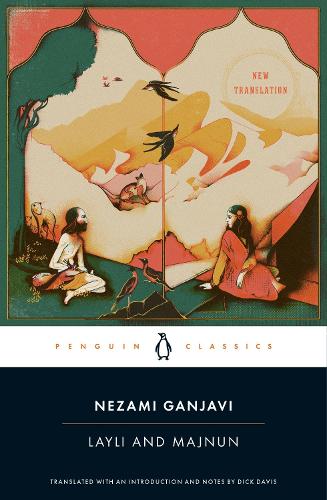
Layli and Majnun
(Paperback)
Publishing Details
Layli and Majnun
By (Author) Nezami Ganjavi
Translated by Dick Davis
Penguin Books Ltd
Penguin Classics
4th May 2021
29th July 2021
United Kingdom
Classifications
General
Non Fiction
Poetry / poems by individual poets
Ancient, classical and medieval texts
891.5511
Physical Properties
Paperback
320
Width 128mm, Height 196mm, Spine 15mm
226g
Description
The Persian epic that inspired Eric Clapton's unforgettable love song "Layla" and that Lord Byron called "the Romeo and Juliet of the East," in a masterly new translation The Persian epic that inspired Eric Clapton's unforgettable love song "Layla" and that Lord Byron called "the Romeo and Juliet of the East," in a masterly new translation A Penguin Classic The iconic love story of the Middle East, by a twelfth-century Persian poet who has been compared to Shakespeare for his subtlety, inventiveness, and dramatic force, Layli and Majnun tells of star-crossed lovers whose union is tragically thwarted by their families and whose passion continues to ripple out across the centuries. Theirs is a love that lasts a lifetime, and in Nezami's immortal telling, erotic longing blends with spiritual self-denial in an allegory of Sufi aspiration, as the amenities of civilization give way to the elemental wilderness, desire is sublimated into a mystical renunciation of the physical world, and the soul confronts its essence. This is a tour de force of Persian literature, in a translation that captures the extraordinary power and virtuosity of the original.
Reviews
A highly engaging tale of impossible love . . . The first verse translation of the 12th-century Persian poet Nezami . . . Daviss rhythmic translation is full of lush imagery.Publishers Weekly
Nezami . . . paints a visionary world full of erotic tension and trepidation which is both sublimated and enriched with psychological chiaroscuro.Italo Calvino
Author Bio
Nezami Ganjavi (1141-1209) is considered the greatest romantic epic poet in Persian literature. A Sunni Muslim born to a Persian father and a Kurdish mother, he lived most of his life in his hometown of Ganjeh, in present-day Azerbaijan. He was married three times; all three of his wives predeceased him, and, rarely for a Persian poet of his time, he wrote with apparently heartfelt and surprisingly personal eloquence about his affection for them and his sorrow at losing them. His introduction of an element of mysticism into his romance narratives is an innovation that was followed by most of his many imitators.
